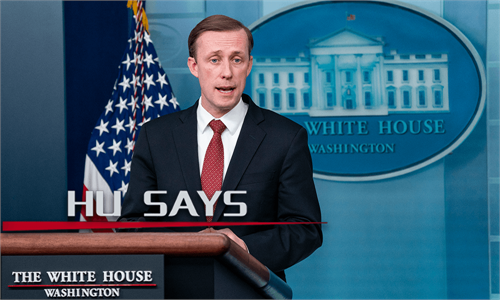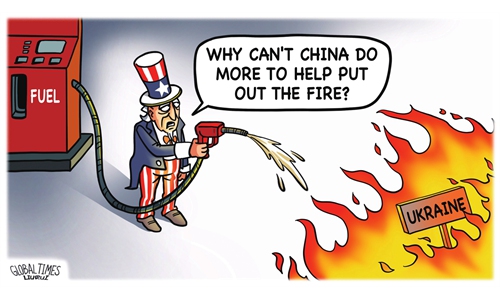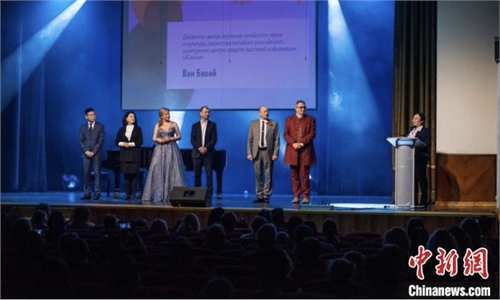Contacts between youth organizations show that China-Russia relations will only grow stronger: Russian youth leader
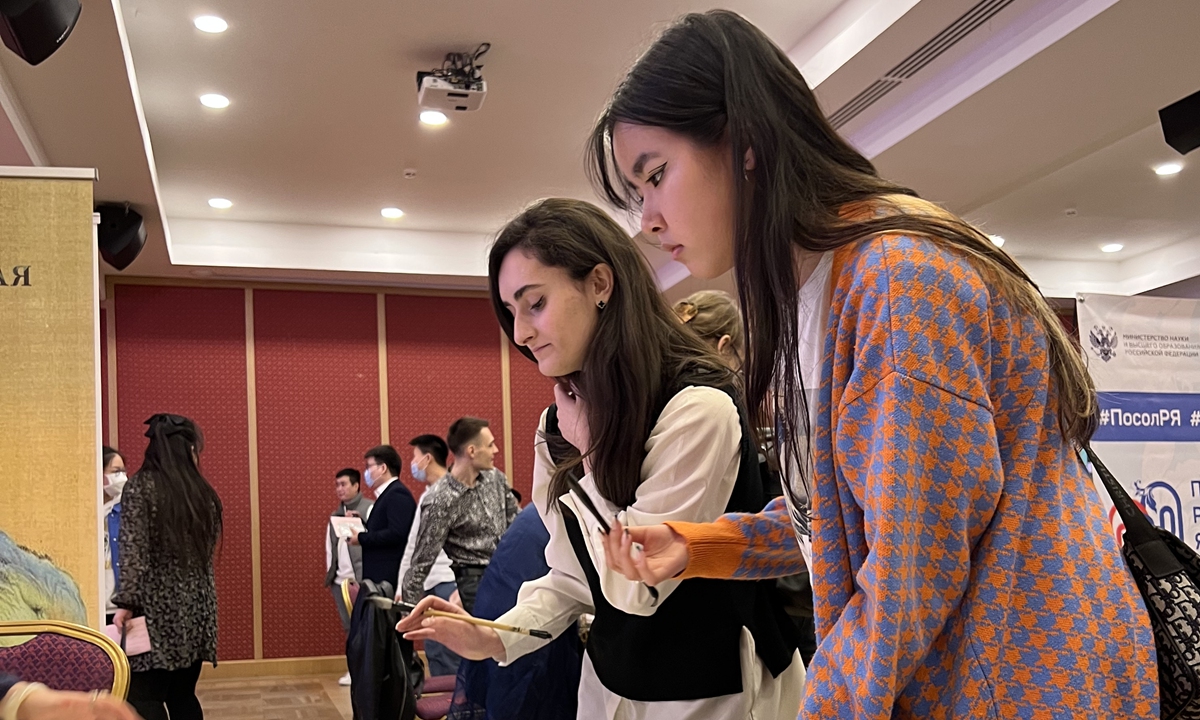
The "China-Russia Relations Unlimited Future" Youth Forum is held in Moscow on April 25, 2022. Photo: cnsphoto
For the Chinese people, the past decade has been epic and inspirational. The country, under the leadership of the CPC Central Committee with Comrade Xi Jinping at the core, has made great endeavors in boosting its economy, deepening reforms, improving the rights of its people and acting as a responsible power globally.
As China has developed rapidly in the past years, it has also deepened its cooperation with close neighbors, such as Russia, at all levels. In an interview with Global Times (GT) reporter Xia Wenxin, Alexander Mitrofanov (Mitrofanov), Deputy Chairman of the Russian Union of Youth (RUY), shared his views on various topics, including China's development in the past decade, the impact of the West's sanctions on the Russian youth and the cooperation between Chinese and Russian young people.
This is the 16th article of the series about this special decade.
GT: Tell us about your organization. What kind of cooperation projects do you have with China?
Mitrofanov: The RUY is one of the largest youth organizations in the Russian Federation. It has a history of more than 30 years. We are the successor of the Komsomol of the Soviet Union and the keepers of the traditions established by Komsomol members. Of course, we cherish our history and enhance it with present-day activities, including new projects trying to connect generations.
If we talk about the projects we traditionally implement with the People's Republic of China, we have a good partner and a good friend of ours: the All-China Youth Federation. We used to have a format of Russian-Chinese youth exchanges called "a hundred for a hundred" - one hundred Russian and Chinese youth representatives visited each other's countries. We are implementing a large project, the Russian-Chinese Youth Business Incubator. Both of these are our flagship projects.
Just recently, with support from the Chinese Embassy in Russia and the Federal Agency for Youth Affairs, we also began to develop relationships with students who study in Russia from China. A memorandum of cooperation and understanding was signed between the Chinese Students and Scholars Association in Russia and the Association of Russian Students and Student Unions, a student movement of the RUY. So I think all these also contribute to strengthening and deepening the relations between young people in Russia and China.
GT: How do Russian youths evaluate China's achievements over the last decade? How do they see today's China?
Mitrofanov: Russian leaders have noted China's economic successes. International organizations see that China is essentially becoming one of the largest economies in the entire world. In Russia, we see this as well. We are happy about the successes of our friends and colleagues who have been working hard for the good of their country.
Russian youths now have more and more interest in visiting China, especially Chinese major cities - we know how much the appearance of China's cities has changed. I know that students from Russian universities are actively interested in Chinese, a language that is becoming popular. They go study in Chinese universities to learn more about the language and culture.
Students from China are also interested in Russian culture and language. And a large number of young people from China study in our universities in various specialties. So, of course, such an interest is mutual.
GT: The West, especially the US, has been suppressing Russia for many years, and recently it has begun to apply extreme sanctions against Russia. How do Russian young people feel about this?
Mitrofanov: Well, I would like to note that an extraordinary consensus about the whole situation has developed in Russian society as a whole. And young people here have also reached a consensus over our president and our government's policy about the special military operation.
Such an extraordinary consensus is related to the need to support our soldiers in fulfilling their duty to our society and country. We, as RUY, take an unequivocal position of supporting the state in the goals set for the military on tasks in Ukraine.
Once again, I would like to say that the sanctions imposed on Russia are illegal. We are seeing an attempt from Western countries to crush Russia and its development using such illegal methods.
GT: Have sanctions affected the lives of young people in Russia?
Mitrofanov: The Western press says that they have imposed "crushing sanctions." But if you look at the life of any city in Russia, the situation has generally remained the same. Maybe some big chain stores are gone. But on the other hand, many other alternative stores for different kinds of products have filled their place.
Russian brands, for example, clothing, have been happy to fill the niche that foreign brands previously occupied. So it seems to me that the whole situation is shaping up in favor of domestic manufacturers and those manufacturers who represent countries that are friendly to Russia.
The Russian government is doing everything to ensure that Russian citizens do not feel the effects of the illegal sanctions imposed by countries unfriendly to us. The foreign companies that have left Russia will bite their nails after seeing the current situation.
I think the situation is stable and normal, and there are always alternatives. At the same time, it is worth noting that Russia maintains contact with various countries, particularly those interested in cooperation and partnership.
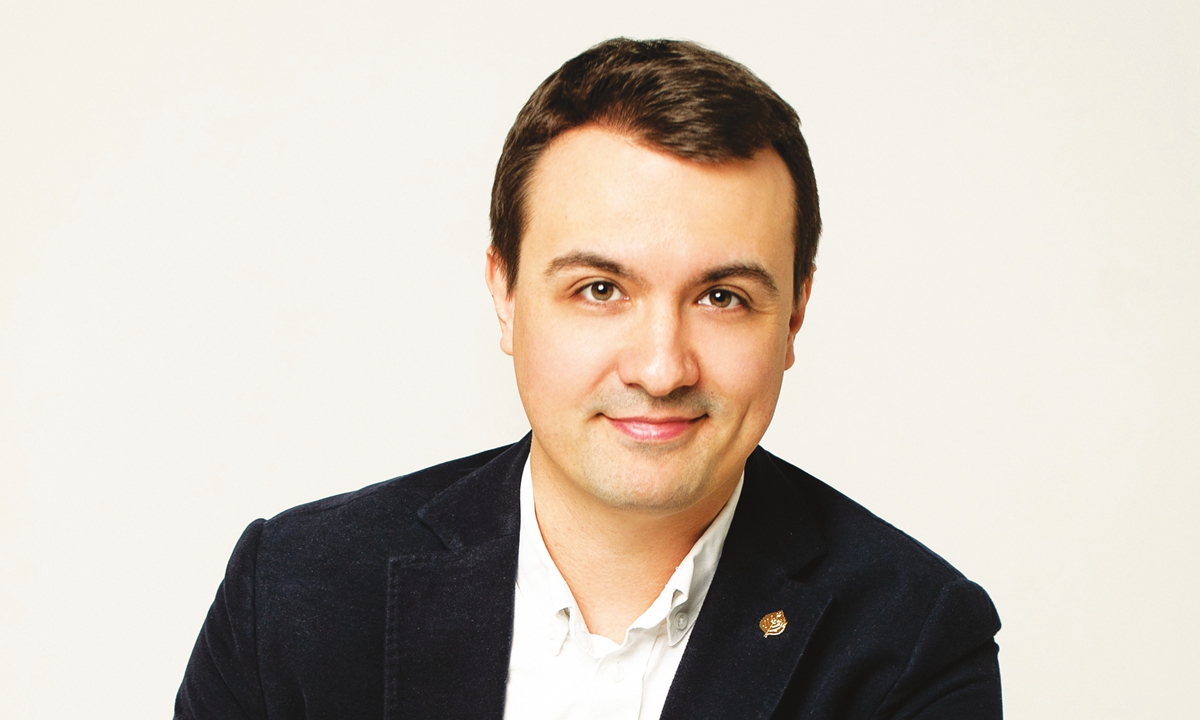
Alexander Mitrofanov Photo: www.ruy.ru
GT: The West often refers to Russia as an "authoritarian state." What's your take on this?Mitrofanov: Here, we need to define the term "authoritarianism." "Authoritarianism" could be a feature of some states in the 20th century, but it is impossible nowadays. Such comparisons [between the so-called democratic and authoritarian states] are just an element of the hybrid wars and information wars against Russia and China, which are publicly aimed at rocking the socio-political situation inside the countries.
Let's take a look at how so-called Western democratic countries treat the expression of their people's opinions. When citizens of these countries, such as France and the US, express alternative views, they are harshly suppressed.
Modern Russia is an example of a democratic country with its particular characteristics. We have a large number of political parties and a large number of public organizations. Young people also have the opportunity to participate in the country's political life. We had a lot of young deputies under 30 years of age or just over 30 elected to the State Duma. This is an indicator of the degree to which young people are involved in the political agenda with their proposals and initiatives. These are all signs of a democratic state.
Young people are wise, and they understand everything. And, of course, we have to work with young people. For this, various NGOs operating in Russia try to explore all the opportunities in the country, so that young people can find themselves in many aspects of life and become good professionals.
GT: Today's Chinese young people have a remarkably different attitude toward the US compared to older generations: Young people in China are more confident in themselves and have more faith in the Chinese path. Is there a similar situation in Russia?
Mitrofanov: There are especially many young people [in Russia] now who see what's going on with Russia as a manifestation of the West's double standards. Illegal sanctions have pushed young people to understand that Russia, indeed, also has its own path. This path is related to finding oneself and realizing oneself inside the country while preserving one's own country's history and values. Therefore, the aggression toward Russia, on the contrary, is making Russian youths begin to love their homeland and their native country even more. We can also feel such a consensus now.
GT: The Western media describe young Chinese who do not follow the US blindly as "Little Pinks" - young Chinese ultranationalists. How do you feel about this?
Mitrofanov: Actually, I think these statements are labels given by the Western media on purpose. The Western media are not objective in the dissemination of information. And they do it on purpose to add a negative connotation to a specific group of people who are patriots of their country. Like I said, they are trying to influence public opinion in a particular country through these labels. This is yet another challenge we see in reporting the situation in certain countries.
GT: How do you see the future of China-Russia cooperation?
Mitrofanov: I think that relations between our countries are very warm and friendly, and our leaders also show their friendship in every way in the international arena. And this generally characterizes the relations between all the people of our countries as well.
We have signed a treaty of good-neighborliness and friendly cooperation between Russia and China, which also defines a specific format for the relationship. I can also say that all the contacts between youth organizations in our countries show that relations between Russia and China will only grow stronger and stronger.
And I think this cooperation is vital not only for Russia and China, but for the whole world, because the modern world is very diverse. There cannot be one hegemon in the world which dictates the rules. Russia and China are examples of sovereign states that can speak openly on the most challenging topics and come to an understanding and a common solution for the benefit of the world as a result of dialogue. The role of Russia and China is very significant.
GT: What would you like to say to the young people in China?
Mitrofanov: I would like to wish Chinese youths to find themselves, realize themselves, and become true patriots and citizens who contribute to the strengthening of their country. And I would also like to express my hope that young people in China will become even more interested in Russia and will be able to visit our country through both humanitarian cooperation programs and education. Our dialogue is very critical.
